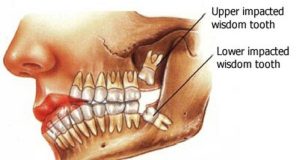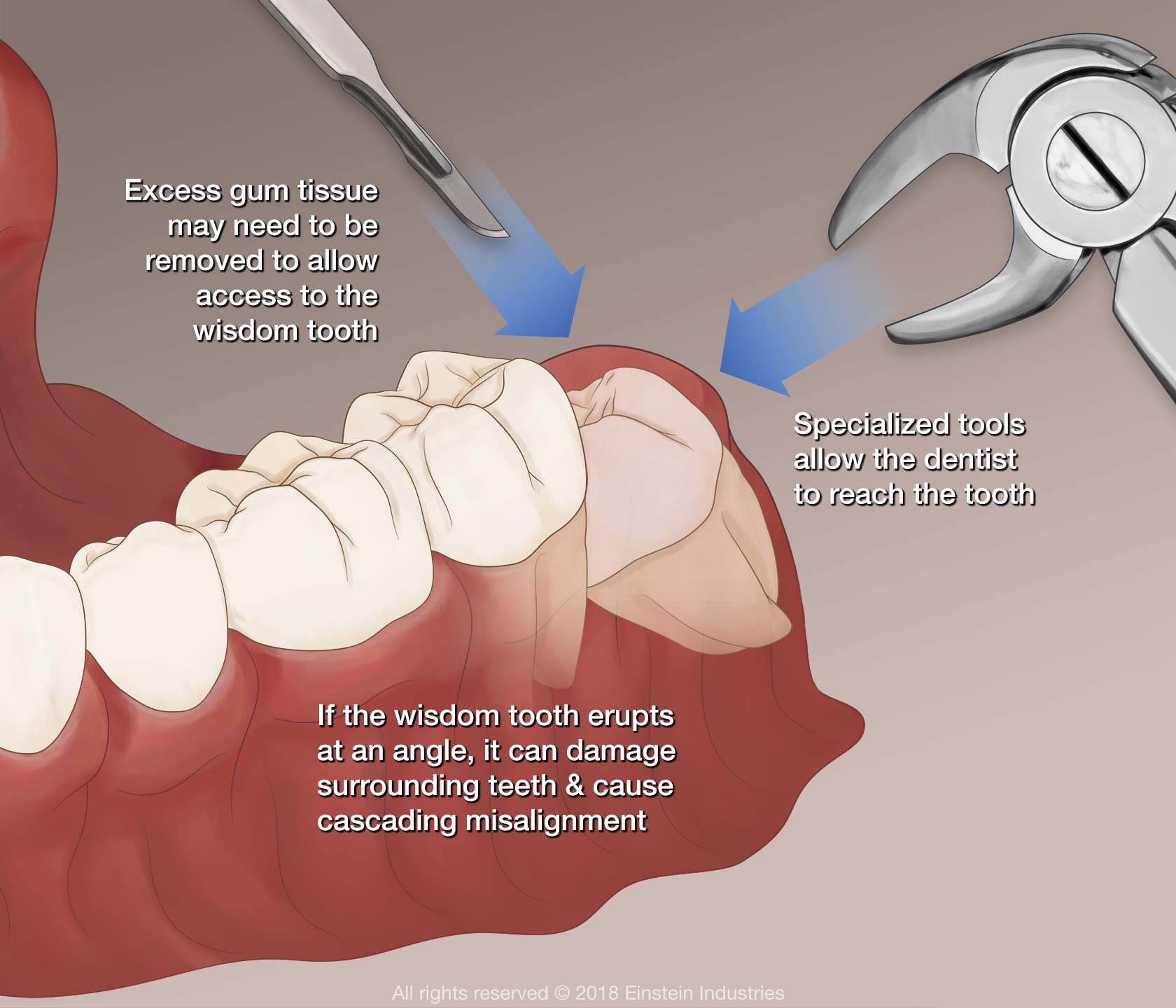The Only Guide for Tooth Extraction
Summary Wisdom tooth removal is a procedure to get rid of one or even more knowledge teeth the 4 irreversible grown-up teeth found at the back corners of your mouth on the top and base. If a wisdom tooth doesn't have room to grow (impacted wisdom tooth), resulting in discomfort, infection or various other oral issues, you'll likely require to have it drew.
To stop potential future troubles, some dentists as well as oral surgeons advise knowledge tooth extraction also if impacted teeth aren't currently triggering problems. Why it's done Knowledge teeth, or 3rd molars, are the last long-term teeth to appear (emerge) in the mouth. These teeth typically show up in between the ages of 17 and also 25.

For others, wisdom teeth erupt usually equally as their other molars did as well as trigger not a problem. Lots of people develop impacted wisdom teeth teeth that do not have enough room to appear into the mouth or establish generally. Influenced knowledge teeth might appear only partially or otherwise in any way. An affected knowledge tooth might: Grow at an angle toward the following tooth (2nd molar) Grow at an angle towards the rear of the mouth Expand at an ideal angle to the various other teeth, as if the knowledge tooth is "resting" within the jawbone Expand directly up or down like various other teeth yet remain entraped within the jawbone Problems with impacted knowledge teeth You'll likely require your impacted knowledge tooth drew if it causes issues such as: Discomfort Trapping food as well as debris behind the wisdom tooth Infection or periodontal disease (gum condition) Dental caries in a partially emerged knowledge tooth Damages to a neighboring tooth or bordering bone Development of a fluid-filled cavity (cyst) around the knowledge tooth Difficulties with orthodontic therapies to correct the alignment of various other teeth Preventing future dental troubles Oral specialists differ concerning the value of removing influenced knowledge teeth that aren't creating troubles (asymptomatic).
Some Known Details About Tooth Removal
Nonetheless, here's the reasoning for precautionary extraction: Symptom-free knowledge teeth could still nurture illness. If there isn't sufficient room for the tooth to erupt, it's commonly hard to obtain to it and clean it appropriately. Severe difficulties with knowledge teeth happen less often in more youthful adults. Older adults may experience problem with surgical procedure as well as issues after surgical treatment.
Nevertheless, removal of impacted knowledge teeth sometimes requires a surgical approach that involves making an incision in the gum cells and also removing bone. Hardly ever, issues can consist of: Uncomfortable dry outlet, or exposure of bone when the post-surgical blood embolism is lost from the site of the surgical wound (outlet) Infection in the outlet from bacteria or trapped food particles Damage to close-by teeth, nerves, jawbone or sinuses How you prepare Your dental expert might carry out the procedure in the office.

Along with making the location numb with neighborhood anesthetic, your cosmetic surgeon might recommend sedation to allow you to getting teeth whitened be more comfy during the treatment. Concerns to ask Inquiries you may desire to ask your dentist or oral cosmetic surgeon consist of: The number of wisdom teeth require to be removed What type of anesthetic will I obtain Exactly how complex do you expect the procedure to be The length of time is the procedure likely to last Have the impacted wisdom teeth caused damage to various other teeth Exists a risk that I could have nerve damages What other dental therapies may I require at a later date The length of time does it require to entirely heal and go back to normal task Getting ready for surgery A wisdom tooth extraction is often carried out as an outpatient procedure.

What Does Tooth Removal Do?
You'll obtain guidelines from the hospital or dental clinic staff on what to do before the surgical treatment and also the day of your scheduled surgery. Ask these questions: Will I require to make setups for someone to drive me home wisdom teeth care after the treatment When do I require to come to the dental clinic or healthcare facility Do I require to stay clear of consuming food or alcohol consumption fluids or both (quick) If so, when do I begin Can I take my prescription medications prior to the surgical procedure If so, exactly how quickly prior to the surgical procedure can I take a dosage Must I stay clear of any nonprescription medications before the surgical procedure What you can expect During the treatment Your dentist or dental specialist may use among 3 kinds of anesthesia, relying on the expected intricacy of the wisdom tooth extraction as well as your convenience degree.
Your dentist or oral specialist administers neighborhood anesthesia with one ask a dentist or more shots near the website of each removal. Prior to you get an injection, your dentist or doctor will likely use a material to your gum tissues to numb them. You're awake during the tooth removal. Although you'll feel some stress and activity, you shouldn't experience pain.

Your dental expert or oral doctor provides you sedation anesthetic with an intravenous (IV) line in your arm. Sedation anesthetic suppresses your consciousness throughout the procedure. You do not really feel any type of pain as well as will certainly have restricted memory of the treatment. You'll also get neighborhood anesthesia to numb your gum tissues. General anesthesia. In unique situations, you may be offered basic anesthetic.